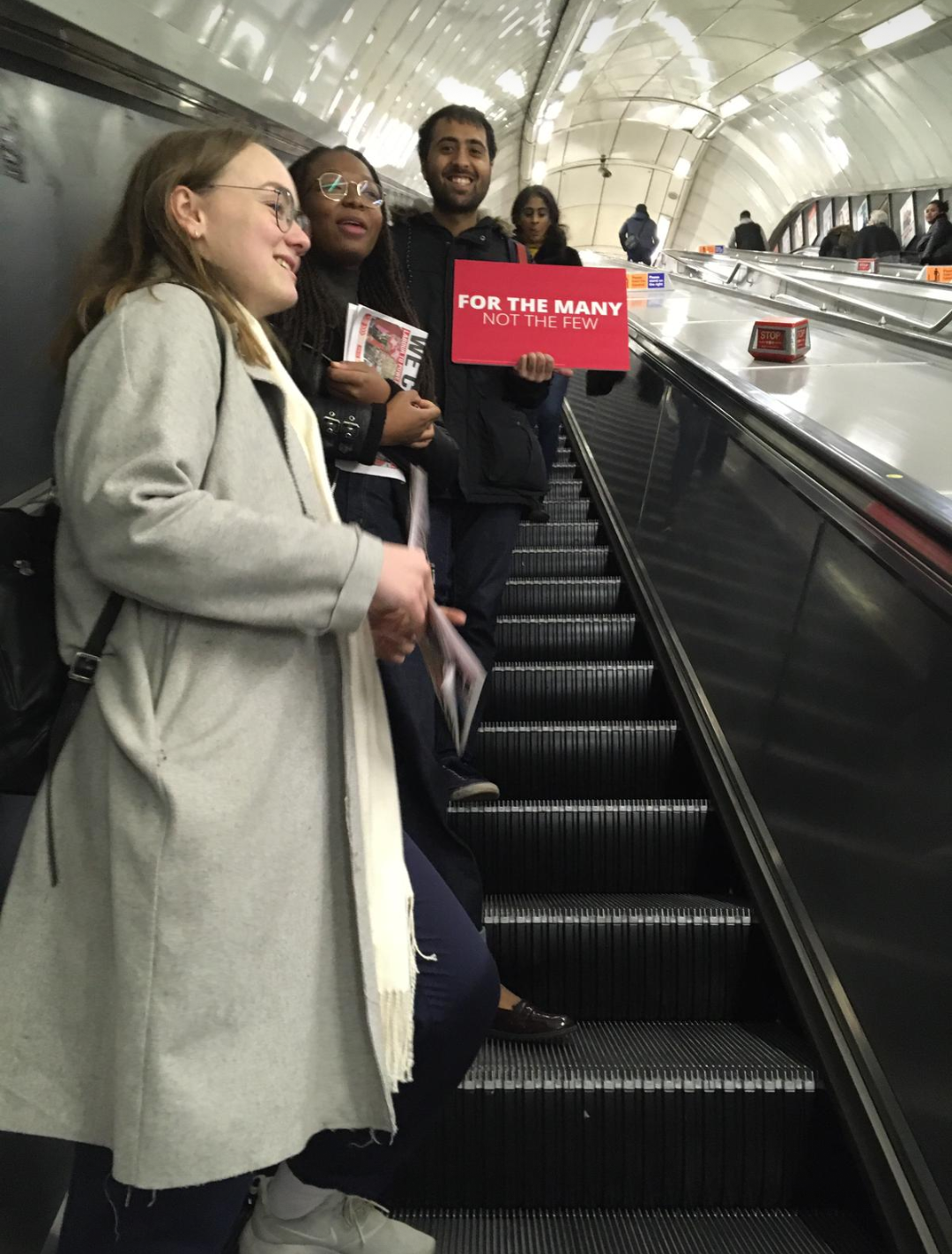Labour Gears Up for Leadership Election

By Anna Fenton-Jones, BA Middle Eastern Studies
After a disappointing defeat for Labour in December, the race to become Jeremy Corbyn’s successor gets underway as young Labour activists throw their support behind Momentum-backed Rebecca Long-Bailey.
In the weeks following Labour’s election defeat, several candidates suggested that they were interested in entering the leadership race. Six – Keir Starmer, Rebecca Long-Bailey, Jess Phillips, Lisa Nandy, Emily Thornberry, Clive Lewis – entered, and five made it through to the second round, with Clive Lewis bowing out in the early stages.
With less than a month to go until the ballot opens, the latest YouGov polling shows Starmer and Long-Bailey pulling ahead of the remaining candidates despite Lisa Nandy securing a spot on 22 January with the support of the GMB, the UK’s third-largest union, and Chinese For Labour.
This comes after Jess Phillips announced she was quitting the leadership race on 21 January, citing an inability to unite the party. Phillips failed to secure any support from unions or affiliated groups and has since come out in support of Nandy, with Starmer ‘a close second’.
Starmer, the current favourite to win, has been described as a soft-left ‘safe pair of hands’. With 88 nominations going into the race, he is viewed by many centrists as an antidote to Corbyn’s ‘unelectability’.
As voter registration closed on 20 January, numbers indicated that 70,000 new members joined the Labour party since the election, with some suggesting this uptick in members is an attempt to push Labour towards the centre. 14,700 people also became ‘registered supporters’ for this upcoming election, a fraction of the 180,000 who did so for the 2015 election which saw Corbyn secure a landslide majority.
“Now is not the time to abandon Corbynism” say student activists.
(Credit: Nico Navarro)
Students were amongst Corbyn and Momentum’s biggest supporters. Thousands volunteered nationally to help with door-knocking, galvanised by what was considered as Labour’s most ambitious manifesto ever. Young candidates like Ali Milani and Nadia Whittome attracted volunteers with anti-austerity policies. Milani’s campaign in Boris Johnson’s seat of Uxbridge and South Ruislip was widely seen as a predominantly anti-Tory, ‘F*uck Boris’ movement. Many want the party to stay committed to this ethos, rather than elect a candidate from its centre.
‘Now is not the time to abandon Corbynism,’ says SOAS student and Labour activist Nico Navarro. ‘This is the beginning, not the end.’ His fellow campaigners agreed: ‘We cannot give the party back to the Blairites.’
Like many of his peers, Nico is backing Rebecca Long-Bailey whose commitment to socialist policies and support from Momentum founder Jon Lansman makes her the most Corbyn-esque candidate. Does Nico feel despondent after what was seemingly a landslide victory for conservative, nationalist ideologies? ‘Losers learn lessons,’ he says, ‘and it’s important to remember that Labour received more votes in this election than it did in 2005.’
Whether or not student activists will unite behind the new leader may come down to the fractious state of Labour student organisations. The official Labour Students group was abolished by the National Executive Committee ahead of the party conference in September after Lansman argued the group should be replaced. Officially, the complaint was made over unpaid affiliation fees, but many student Labour groups had made their disappointment known after only 507 students purportedly took part in its last election. Commentator and Momentum supporter Owen Jones called the group a ‘rigged, undemocratic cult’ and the majority of University Labour Societies have publicly disaffiliated from them in recent years. Leftist groups including London Labour Students and Labour Student Left continue to provide networks for student organisation.



